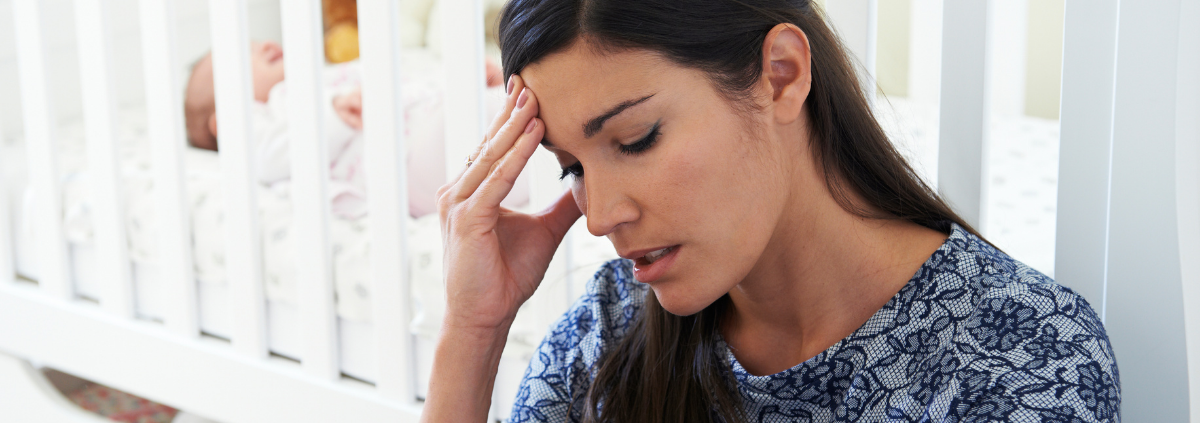The Impact of the Pandemic on Prenatal & Postpartum Mental Health
The pandemic has taken a toll – both physically and psychologically – on countless individuals across the country. There’s one group of people, however, who have faced enormous mental health impacts: expecting mothers.
Pregnancy is a beautiful gift, but it can be quite overwhelming and stressful at times. Now imagine having to give birth to a little bundle of joy in the height of one of the most unprecedented global crises in human history?
On top of unemployment, there have been long periods of quarantine, isolation, and the unfortunate loss of many lives. Women who have given birth during the pandemic or are currently pregnant are highly susceptible to developing anxiety and depression.
How Postpartum and COVID-19 Are Interconnected
For nearly an entire year, hospitals and healthcare facilities did now allow patients to have visitors or bring guests along to their appointments. Medical establishments implemented this policy to mitigate the spread of the highly-contagious COVID-19.
In the past, expecting mothers were accustomed to being surrounded by loved ones – both while attending sonograms and regular check-ups, as well as during labor. A significant other or parent would be there to hold her hand in support every step of the way.
As COVID-19 began running rampant, mothers were required to enter the hospital alone, with only medical staff for assistance as they went into labor. In addition to the lack of emotional support during the actual birth, there was no one by her side in the subsequent moments to celebrate the precious angel just brought into this world. Additionally, previously arranged help from family members in the postpartum period fell through due to quarantine, lockdown measures, and concerns of safety. Hired childcare help became nearly impossible to arrange. Because of this, we’re seeing a major impact on women’s mental health.
What Is Postpartum Depression (PPD)?
Postpartum depression was around long before the pandemic – a result of hormonal changes paired with long, sleepless nights taking care of a newborn. Combine a lack of sleep with the anxiety and worry that accompanies life as a new mother – i.e. concern over their health and well-being, and if you’re making decisions in the best interests of the baby – and it’s easy to imagine why postpartum depression has affected so many new moms.
That sense of helplessness has only grown, as women have to digest the realities of the world around them. People are falling ill and dying daily, there’s economic and financial instability and no one knows for certain if or when “normal life” will return. It’s a lot to handle for anyone – especially those taking care of an infant.
Nationally, one out of eight women will experience postpartum depression.. Since the onset of the pandemic, that number has increased to one in every five women. Mothers normally worry about their newborn’s health – wanting to protect them from sickness and harm. But in a world where the uncertainty and challenges of COVID-19 exist, that fear is multiplied ten-fold.
Approximately 36% of new moms are now experiencing depression, an increase from the 20% reported prior to the pandemic’s arrival.
Less Family Time
Many mothers rely on help from loved ones in the beginning stages of their infant’s life. Or, at the very least, they get to share in the joy and excitement with family, friends, and loved ones. Over the last year, social distancing protocols have barred a lot of new mothers from seeing those they care about and accepting help from family – an important part of addressing their own self-care and well-being.
Oluwatosin Goje, M.D., an OB/GYN at the Cleveland Clinic stated, “People have been separated from their loved ones for a long period of time — and delivery is a family-centered thing.”
What To Do If You’re Experiencing Anxiety or Depression in the prenatal or postpartum period- New Jersey Psychiatrists
If you’re experiencing the signs of anxiety or depression around pregnancy, ask your psychiatric practitioner about medications or strategies you can use in order to combat this common occurrence. It’s difficult experiencing symptoms during or after pregnancy, but you do not need to go through this alone. For more information on how Hudson Psychiatric Associates, LLC can help you, contact us today.

